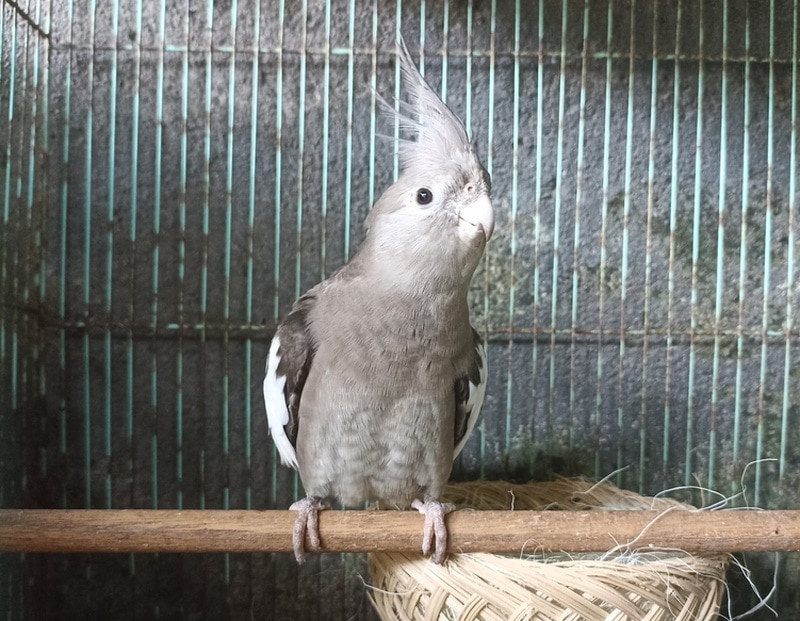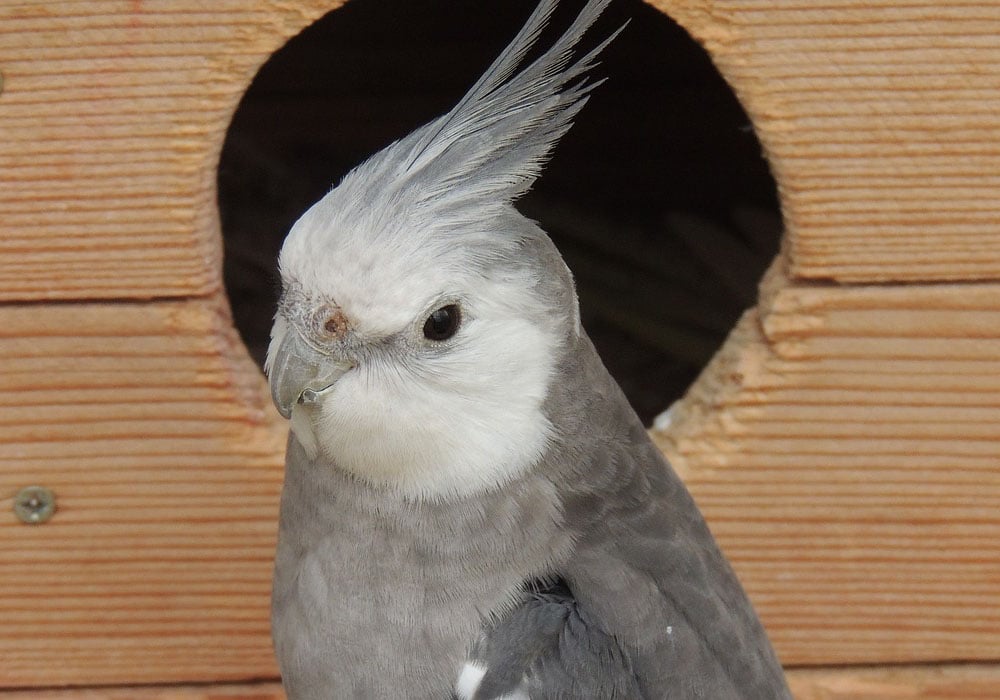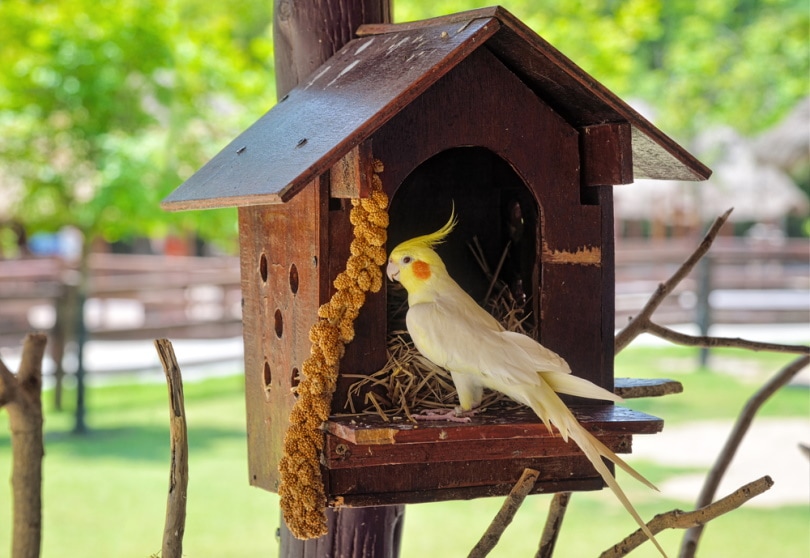Where Do Cockatiels Originate? History & Current Status
Updated on
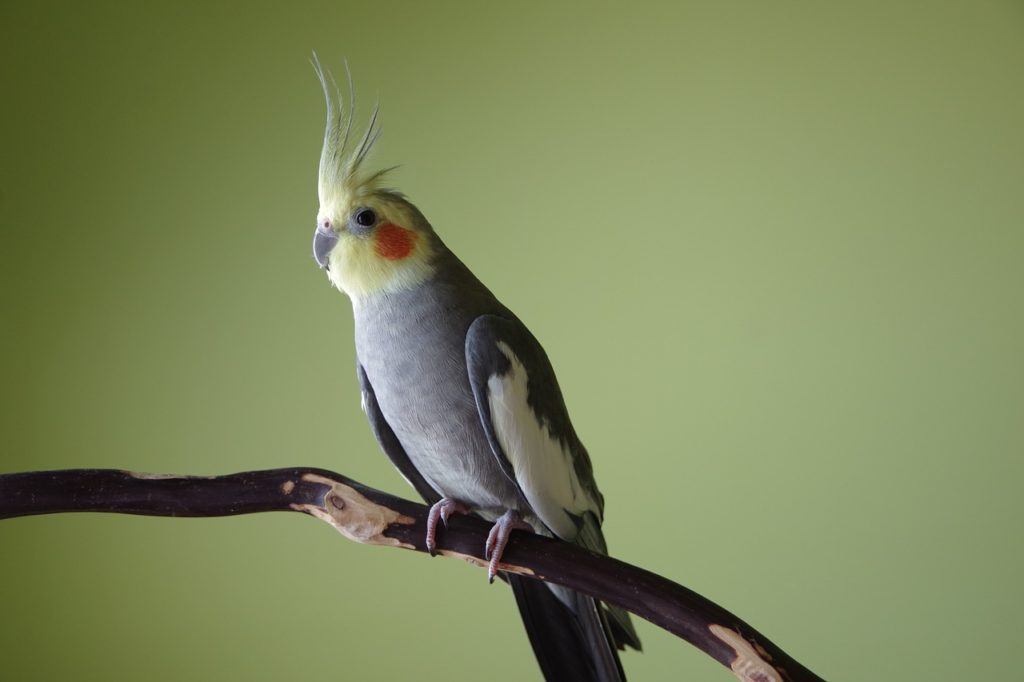
Cockatiels are such popular pet birds that we sometimes forget how they even became animal companions. They have many qualities that we appreciate. They are friendly and quite social, and they’re chatty with a delightful whistle. However, they’re not loud and obnoxious like some parrots. It’s easy to understand why people brought them into their homes. These birds originate from Australia, but they’ve made their way into homes across the world.
Home in Australia
The Cockatiel hails from the shrublands, savannas, and forests of Australia. That is where the story of its origin begins. The Dutch first explored the country in the 1600s, giving its name New Holland. Later, the British traveled Down Under in the late 1700s. Scottish naturalist Robert Kerr first described the Cockatiel in 1792,1 giving it the scientific name Psittacus hollandicus.2
German ornithologist Johann Georg Wagler later changed it to its current name Nymphicus hollandicus, in 1832.3 While keeping true to Kerr’s description of the species’ name, Wagler took a romantic turn with the reference to Greek mythology’s label for beautiful maidens.4 Australia’s fate changed when explorers discovered gold in the mid-1850s. After that, it wasn’t long before the cockatiel made it to Europe.
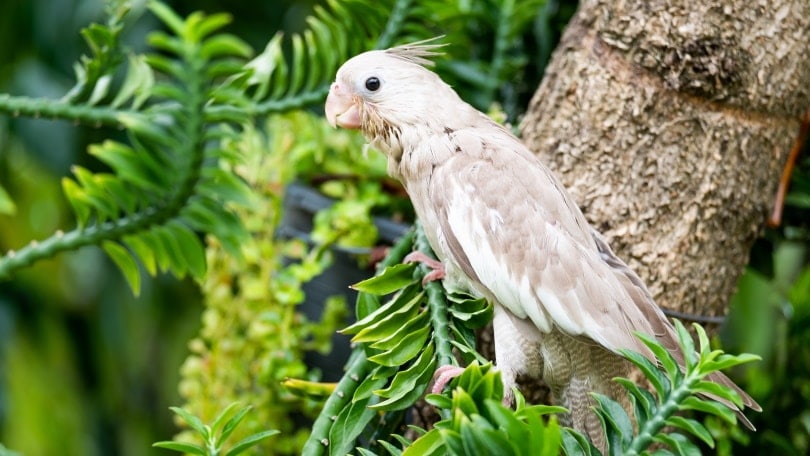
Becoming a Pet Bird
Europeans fell in love with the charming cockatiel, with breeding well-established by the mid-1880s. Exports continued until Australia enacted a ban on exporting birds in 1939. All of these birds you see today are raised in captivity. Mutations and selective breeding have led to many variations from the original gray or “normal” cockatiel.
Today, breeding and show birds have taken off, especially since the founding of the American Cockatiel Society (ACS) in 1976. The organization has an official standard for the bird and detailed classes for the different color classes.
- Pied
- Lutino
- Pearl
- Cinnamon
It’s safe to say that the Cockatiel has come a long way from the Australian Outback.
Current Status
According to the International Union for Conservation of Nature and Natural Resources (IUCN), the cockatiel is a species of least concern, although the precise number in the wild is unknown. Feral escapes exist in Puerto Rico and in a few other places, such as New York and California. Most of these birds have not established breeding populations in these areas, though.
Scientists have learned much about this playful parrot. Not surprisingly, it’s an intelligent animal. Research has shown they have musical talent and can even keep time with the beat. While they’re not on par with cockatoos, they indeed can learn a few tricks and several words.
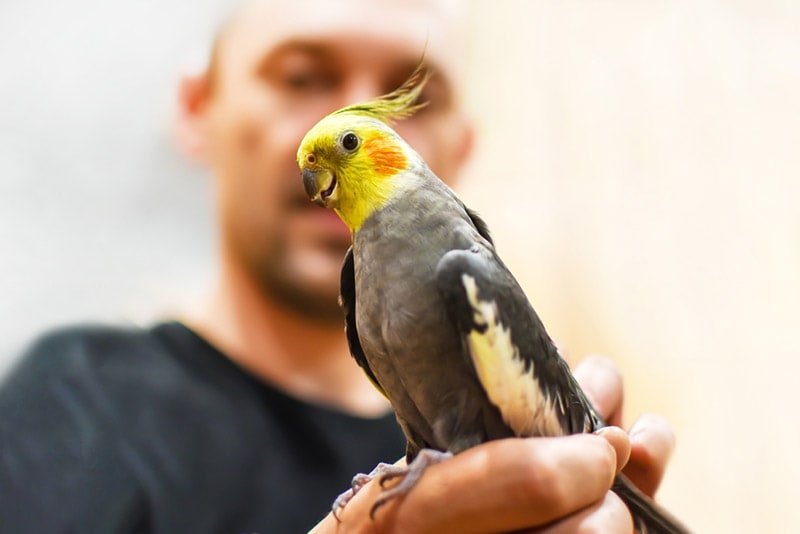
Final Thoughts
Cockatiels are delightful birds. It’s easy to see why people became so enamored with them. Their friendly and outgoing personality certainly helped. Today, the cockatiel is an excellent pet for first-time bird owners. It is relatively healthy and long-lived with proper care, and its social nature will ensure you have an avian buddy that is always ready to accept a treat or sing a song with you.
- Related Read: Where Can I Buy a Cockatiel? Guide & Tips
Featured Photo Credit: jlkramer, Pixabay

